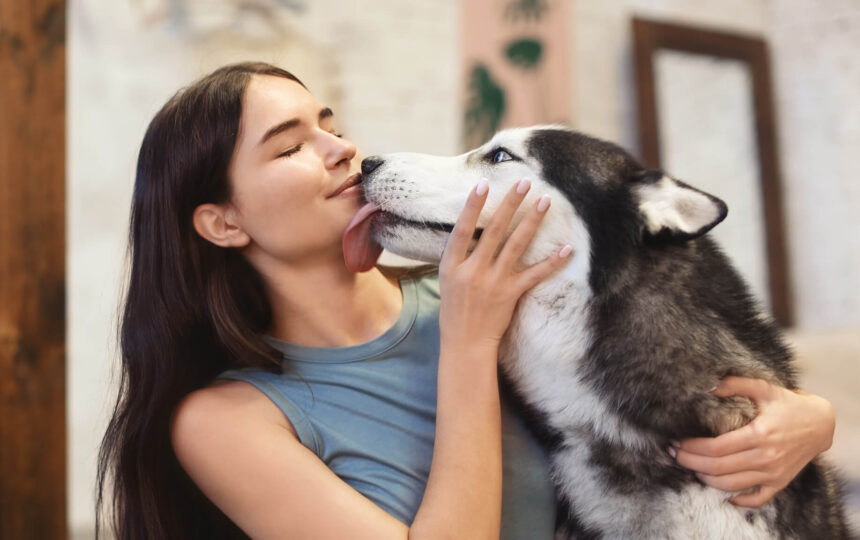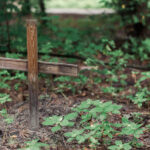You brush twice a day, floss regularly, and visit the dentist twice a year…or at least you should. Just like humans can slack off on their own dental care, many pet owners also fail to look after their animal’s oral health.
Neglecting to take care of your dog’s teeth contributes to bad breath (halitosis) and other ailments, including cavities and periodontal disease. Thankfully, there are many natural cures to help eradicate bad breath and keep your dog healthy and smiling.
Why does your dog’s breath stink?
Poor oral hygiene
Poor oral hygiene and periodontal disease are among the top contributing factors to stinky dog breath. Many pet owners are surprised to learn that they are supposed to brush their dog’s teeth. Dogs can get plaque buildup that leads to cavities and poor oral and overall health.
Health issues
The mouth is the window to the rest of the body, and if your dog has stinky, rotting teeth, there’s a good chance that something else is afoot.
Kidney disease, diabetes, gastrointestinal disease, and liver disease cause bad breath in dogs. If you stay on top of brushing your dog’s teeth and feed them a clean diet, these chronic health conditions could be to blame for the stinky breath. They are especially likely when paired with other symptoms, such as decreased appetite or vomiting.
If your dog suddenly develops halitosis and you notice a change in their behavior, make an appointment with the vet.
Also important to note: While many conditions cause bad breath, the reverse is also true. Oral disease can cause chronic illness. Look after your dog’s teeth to look after their whole body.
Diet
Refined grains, fillers, artificial flavorings, and mystery meats wouldn’t leave anyone’s breath smelling minty fresh. Not only does poor food (especially canned wet food) cause bad breath directly, but it can also contribute to gastrointestinal and digestive issues that lead to halitosis.
Natural solutions for bad breath in dogs
Brush their teeth
The best cure for foul pet breath is simple. Brush their teeth and brush them often. If you didn’t brush your teeth for weeks, you’d probably have bad breath too! If Spot’s kisses make you queasy, that’s a good hint you’ve neglected this essential component of pet care.
Experts recommend brushing your dog’s teeth at least two to three times per week. Unfortunately, this is easier said than done if you’ve never brushed their teeth. Follow these steps to help make the tooth-brushing process more pleasant for everyone involved.
- Purchase the proper tools. Human tooth-brushing supplies aren’t designed for pets. Don’t just head to your medicine cabinet and grab a spare toothbrush and tube of Crest or Colgate. These can lead to gastrointestinal upset, including vomiting and diarrhea. Plus, many contain xylitol which has been linked to liver failure in dogs. Instead, purchase specifically formulated natural pet toothpaste and a toothbrush for dogs.
- Ease into it. Allow your pet to lick and inspect the toothbrush and reward them (with a dental-friendly treat!) when they do. Place a pea-sized amount of toothpaste on the brush and give them praise and another treat when they sniff it or lick it.
You should also start lifting up their gums to help them get comfortable with your hands near their mouth. Start creating a ritual so your dog knows what to expect and associates this time with lots of praise and reward. Do this every day for about a week before you start brushing their teeth. You want this to be a positive experience as much as possible.
- Brush their teeth. Lift up your dog’s gums and gently brush the outside of their teeth in small, circular motions. Pause every 10-15 seconds and give them a belly scratch or cheerful “atta boy.”” Make sure to get the gum line to help prevent oral disease and plaque buildup.
- Listen to your dog! Some dogs just won’t allow you to brush their teeth. If they become aggressive or won’t let you near their mouth with a toothbrush, stick to alternative dental care options at home and take them to get their teeth professionally cleaned regularly.
Coconut oil
This antibacterial, antiviral, and antifungal superfood isn’t just for humans! Adding a spoonful of coconut oil to your puppy’s food (or letting them lick it off the spoon) daily can help improve their bad breath and keep their coat shiny. You can even brush their teeth with it. As a bonus, most dogs love coconut oil, so you won’t have to sneak it.
Parsley
While it might not be the first bad-breath solution that comes to mind, feeding your dog a sprig of curly leaf parsley can help fight off that post-dinner funk and leave their breath smelling fresh and clean. It also contains antioxidants that help fight free radicals and protect against chronic inflammation and diseases.
If they enjoy the taste, simply give them a piece of fresh curly leaf parsley each day or add it to their food. For dogs that aren’t parsley fans, blend one teaspoon (per 20 lbs of body weight) with water and pour over their food.
Natural treats
These fruits and veggies make excellent rewards for your pet. They are a healthy, natural alternative to traditional treats and work to clean their teeth and prevent bad breath.
- Carrots
Carrots are full of fiber, beta carotene, and vitamin A and function like natural dental bones to keep your dog’s teeth clean. These healthy orange veggies make excellent treats and are the perfect reward for your pup. Remember, carrots do have natural sugar, so feed them as you would any other treat, but don’t go overboard.
- Celery
Celery has all of the benefits of carrots without the sugar, which means you can feed it to your pooch even if they’re on a weight loss plan.
- Apple slices
Apples aren’t only for humans and horses! Your canine friend likely loves them too. Give them a few apple slices daily as a treat to help keep their breath fresh and stink-free.
Chew toys and bones
You can purchase dental bones that are specially formulated to clean your pet’s teeth as they chew. While these shouldn’t replace regular brushing, they work great on the off days.
Other toys are designed with brush-like elements that help remove plaque without chemicals or harmful ingredients. Keep a few options around the house for your pup to chew on.
Apple cider vinegar
This powerful vinegar is indeed a jack of all trades. It is antibacterial, antifungal, antiparasitic, and totally safe for your pet. Add a tablespoon of raw organic apple cider vinegar to their water daily to help kill any lingering oral bacteria and keep bad breath at bay.
If it is diluted enough, they shouldn’t notice it and will continue drinking water as normal. However, if you notice your dog avoiding their water or drinking less, reduce the amount of vinegar you add.
Change their food
While adding beneficial food to your dog’s diet is certainly a great step, it’s also important to eliminate the bad food. Conventional dog food is loaded with low-quality ingredients that contribute to digestive upset, weight gain, chronic inflammation, and halitosis. Wet food is particularly culpable, so avoid any canned meals if your dog is fighting this condition.
Invest in a well-balanced raw food diet and avoid food (and treats) that contain any meat by-products, artificial ingredients, colorings, chemicals, or fillers.
Fresh water
It might seem simple, but fresh water is a top solution for bad breath in pets. Though you can’t force your pet to drink more water, you should have it available at all times and in multiple rooms if possible. If they spend any time in your yard, make sure you have a large bowl on hand that you clean and fill up regularly.
Probiotics
The cure for bad breath often starts on the inside. Feeding your pet animal-friendly probiotics can help restore beneficial gut bacteria that aid in digestion, reduce halitosis, and improve overall well-being.
Lemon juice
Like apple cider vinegar, adding a squeeze of fresh lemon juice to your dog’s water could help neutralize nasty oral bacteria that contribute to bad breath.
Beware of smoochies: Fight the stench
With these natural cures for foul pet breath, you can enjoy cuddles and kisses from your furry friend without the ick. Stick to a rigorous at-home oral care routine for your pet and take them to a professional groomer or vet at least twice a year for deep dental cleaning. Schedule it when you schedule your dentist appointment so you don’t forget!






